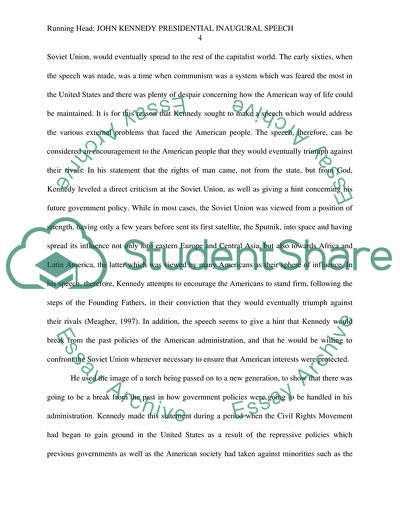Cite this document
(The Leadership of Kennedy and the Patriotism of Americans Essay Example | Topics and Well Written Essays - 2500 words, n.d.)
The Leadership of Kennedy and the Patriotism of Americans Essay Example | Topics and Well Written Essays - 2500 words. https://studentshare.org/history/1818193-john-kennedy-presidential-inaugural-speech
The Leadership of Kennedy and the Patriotism of Americans Essay Example | Topics and Well Written Essays - 2500 words. https://studentshare.org/history/1818193-john-kennedy-presidential-inaugural-speech
(The Leadership of Kennedy and the Patriotism of Americans Essay Example | Topics and Well Written Essays - 2500 Words)
The Leadership of Kennedy and the Patriotism of Americans Essay Example | Topics and Well Written Essays - 2500 Words. https://studentshare.org/history/1818193-john-kennedy-presidential-inaugural-speech.
The Leadership of Kennedy and the Patriotism of Americans Essay Example | Topics and Well Written Essays - 2500 Words. https://studentshare.org/history/1818193-john-kennedy-presidential-inaugural-speech.
“The Leadership of Kennedy and the Patriotism of Americans Essay Example | Topics and Well Written Essays - 2500 Words”. https://studentshare.org/history/1818193-john-kennedy-presidential-inaugural-speech.


